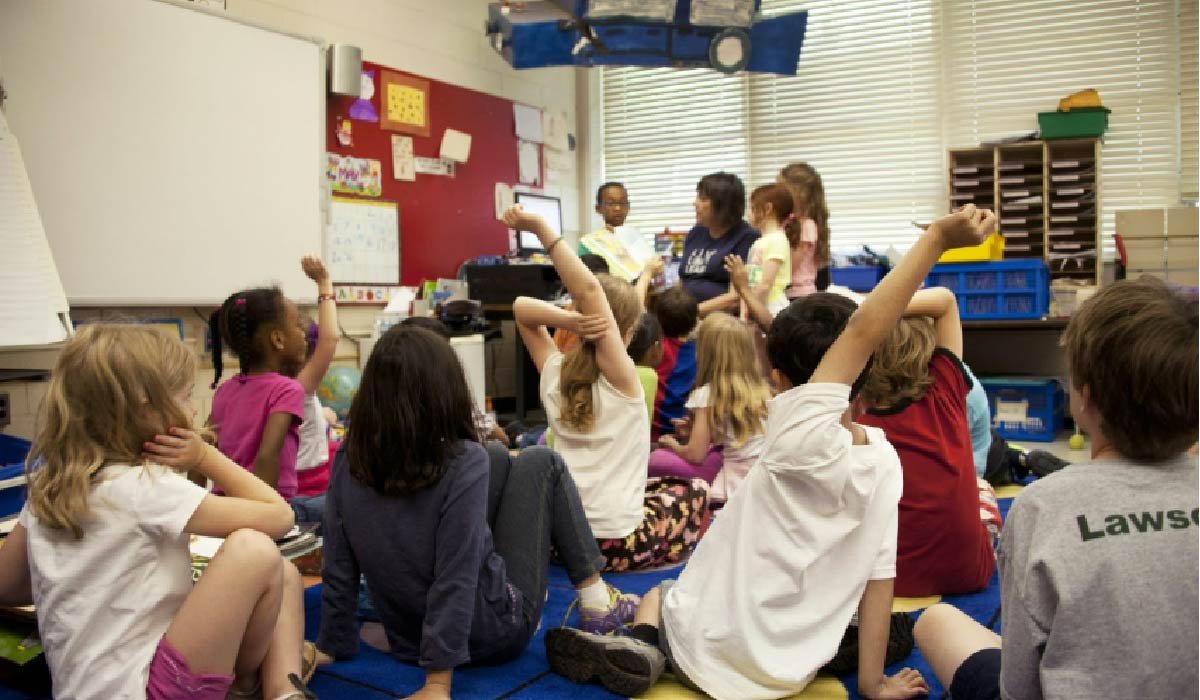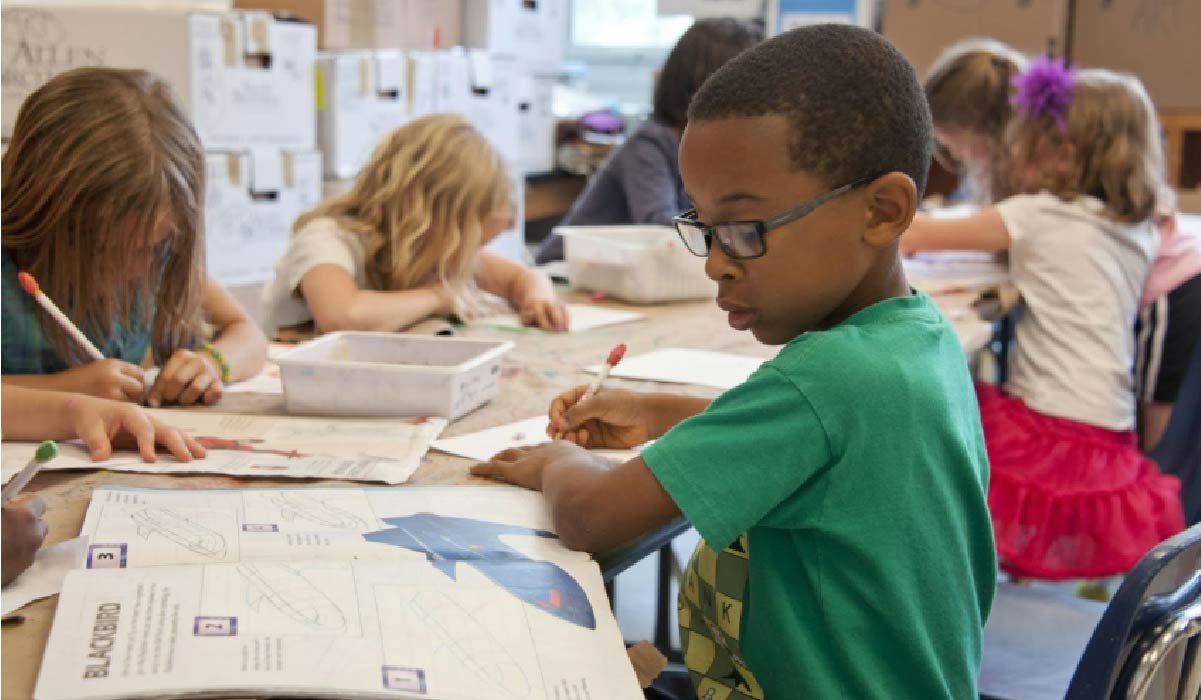Education
Nurturing Young Minds: A Complete Guide to Educational Excellence from Early Years Through Secondary School

Every parent dreams of watching their child thrive academically, but the journey from those first curious questions to confident secondary school success can feel overwhelming. With Singapore’s competitive educational landscape, understanding how to support your child at each developmental stage isn’t just helpful—it’s essential. Whether you’re navigating early childhood development, primary school challenges, or secondary school complexities, the right educational foundation makes all the difference.
The path to academic excellence begins much earlier than most parents realize. It starts with those precious early years when a child’s brain develops at an extraordinary rate, continues through the foundational primary years where core concepts take root, and evolves into the critical secondary phase where independent thinking and analytical skills flourish. Each stage presents unique opportunities and challenges that require different approaches, understanding, and sometimes, additional support.
What makes this journey particularly fascinating is how interconnected these educational phases are. The curiosity nurtured in preschool becomes the foundation for scientific inquiry in primary school, which then blossoms into critical thinking skills needed for secondary education. Understanding this progression helps parents make informed decisions about their child’s educational journey, from choosing the right early childhood program to identifying when additional academic support might benefit their growing learner.
The Foundation Years: Why Early Childhood Education Matters More Than You Think
The human brain undergoes its most dramatic development during the first six years of life, creating over one million neural connections every second. This remarkable period of growth makes early childhood education far more than simple childcare—it’s the crucial foundation upon which all future learning builds. During these formative years, children don’t just learn facts and figures; they develop the cognitive architecture that will support their entire educational journey.
Research consistently shows that high-quality early childhood education programs provide children with advantages that extend well beyond kindergarten. These programs focus on developing executive function skills—the mental tools that help children plan, focus attention, remember instructions, and manage multiple tasks. When children master these skills early, they’re better equipped to handle the increasing academic demands they’ll face throughout their school years.
The social-emotional development that occurs during early childhood is equally important. Children learn to navigate relationships, express emotions appropriately, and develop empathy—skills that prove invaluable in collaborative learning environments later on. They also begin to understand concepts like cause and effect, pattern recognition, and basic problem-solving strategies through play-based learning that feels natural and enjoyable.
Choosing the right early childhood program requires careful consideration of several factors. Look for environments that balance structured learning with creative play, maintain appropriate teacher-to-student ratios, and emphasize hands-on exploration. Quality programs like Small Wonder early childhood preschool understand that young learners need nurturing environments where they can explore, question, and grow at their own pace while building the confidence needed for future academic challenges.
The transition from early childhood programs to formal schooling becomes much smoother when children have developed strong foundational skills. They enter primary school with better attention spans, stronger social skills, and an established love of learning that serves them throughout their educational journey. This investment in early childhood education pays dividends for years to come, making it one of the most important decisions parents can make for their child’s future success.
Primary School Success: Building Strong Academic Foundations
The primary school years represent a critical transition where children move from play-based learning to more structured academic environments. This shift can be challenging for both students and parents, particularly as subjects become more complex and expectations rise. Understanding how to support your child during this phase while recognizing when additional help might be beneficial is key to their continued success.
Primary school introduces children to fundamental concepts across multiple subjects simultaneously. Mathematics progresses from basic counting to complex problem-solving, while language arts evolves from simple reading to comprehensive analysis. Science education becomes increasingly important during these years, introducing students to systematic observation, hypothesis formation, and experimental thinking that will serve them throughout their academic careers.

The fourth year of primary school often marks a significant leap in academic complexity. Students encounter more abstract concepts, longer assignments, and increased expectations for independent work. This is particularly evident in science education, where students begin exploring topics that require deeper analytical thinking and comprehensive understanding of cause-and-effect relationships.
Many parents find that their children benefit from additional support during this crucial period. Specialized programs like p4 science tuition can provide the focused attention and reinforcement that helps students master challenging concepts while building confidence in their abilities. These programs often use innovative teaching methods that make complex topics more accessible and engaging for young learners.
The key to primary school success lies in maintaining a balance between academic achievement and preserving your child’s natural curiosity. Students need opportunities to explore subjects deeply while developing study habits and organizational skills that will serve them well in secondary school. This might involve creating structured homework routines, encouraging questions about the world around them, and celebrating both effort and achievement.

Primary school also introduces children to standardized assessments and competitive academic environments. While these elements are important parts of the educational system, it’s crucial to help children understand that learning is about growth and discovery, not just grades and rankings. Students who develop a growth mindset during primary school—the belief that abilities can be developed through dedication and hard work—are more likely to persevere through challenges in secondary school and beyond.
Communication between home and school becomes increasingly important during the primary years. Regular check-ins with teachers, involvement in school activities, and awareness of your child’s academic progress help ensure that any challenges are addressed promptly. This collaborative approach between parents and educators creates a supportive environment where students can thrive.
Navigating the Secondary School Challenge
Secondary school represents a dramatic shift in educational expectations, social dynamics, and personal development. Students face increased academic rigor across multiple subjects, greater independence requirements, and the pressure of preparing for crucial examinations that will influence their future educational and career paths. This transition often catches both students and parents off guard with its intensity and pace.
The academic demands of secondary school extend far beyond memorizing facts and formulas. Students must develop critical thinking skills, learn to analyze complex texts, conduct independent research, and express sophisticated ideas in written and oral formats. The integration of knowledge across subjects becomes more important, as students are expected to make connections between different areas of study and apply their learning to real-world situations.

English language arts becomes particularly challenging during the secondary years, as students encounter more complex literature, advanced writing techniques, and sophisticated analytical requirements. The ability to communicate effectively—both in writing and verbally—becomes crucial not only for academic success but for future career prospects. Many students find that their primary school language skills, while solid, need significant development to meet secondary school expectations.
This is where specialized support can make a transformative difference. Programs like The Alternative Story’s English tuition for Secondary school recognize that each student has unique strengths and challenges when it comes to language arts. These programs provide targeted instruction that helps students develop the sophisticated reading, writing, and analytical skills required for secondary school success while building the confidence needed to participate actively in classroom discussions and presentations.
The social aspects of secondary school add another layer of complexity to the academic challenges. Students navigate changing friendships, increased social pressure, and the beginning stages of identity formation—all while managing demanding coursework and extracurricular activities. The ability to balance these various pressures while maintaining academic focus becomes a crucial life skill that extends well beyond the classroom.
Time management and organizational skills become absolutely essential during the secondary years. Students must juggle multiple subjects, each with its own requirements, deadlines, and assessment methods. Those who develop effective study strategies early in their secondary school career typically find the later years more manageable and enjoyable.
The Interconnected Journey of Educational Development
One of the most important aspects of supporting your child’s educational journey is understanding how each phase builds upon the previous one. The curiosity and exploration encouraged in early childhood programs creates a foundation for the systematic learning that occurs in primary school, which then develops into the critical thinking and independent analysis required for secondary school success.
This interconnected nature of learning means that deficits in one area can impact performance in subsequent phases. A child who struggles with basic reading comprehension in primary school may find the literature analysis required in secondary English particularly challenging. Similarly, students who don’t develop strong foundational math skills may struggle with the complex problem-solving required in secondary mathematics and science courses.

However, the interconnected nature of learning also means that support provided at any stage can have positive ripple effects throughout a student’s educational journey. Early childhood programs that emphasize language development create advantages that persist through secondary school. Primary school interventions that strengthen foundational skills can dramatically improve secondary school performance. And secondary school support that develops critical thinking and communication skills prepares students for higher education and career success.
The key is recognizing that educational support isn’t a sign of academic weakness—it’s a strategic investment in your child’s future success. Just as athletes work with coaches to improve their performance and musicians study with teachers to refine their skills, students at all levels can benefit from specialized instruction that helps them reach their full potential.
Parents play a crucial role in this interconnected journey by maintaining awareness of their child’s development across all phases. This might involve staying informed about developmental milestones in early childhood, monitoring academic progress during primary school, and providing emotional and practical support during the challenging secondary years. The goal is to create a consistent foundation of support that adapts to your child’s changing needs while maintaining high expectations for their growth and achievement.
Making Informed Educational Choices
The decisions you make about your child’s education—from early childhood programs through secondary school support—have long-lasting impacts that extend well beyond academic achievement. These choices influence your child’s confidence, learning strategies, social skills, and overall relationship with education. Making informed decisions requires understanding your child’s unique needs, staying aware of available options, and maintaining realistic expectations about the educational journey.
Every child develops at their own pace and has unique strengths and challenges. Some children thrive in highly structured environments, while others need more flexibility and creative expression. Some students excel in traditional classroom settings, while others benefit from smaller group instruction or specialized programs. Recognizing your child’s individual learning style and preferences helps guide educational choices that support their specific needs.
The educational landscape offers more options than ever before, from specialized early childhood programs to comprehensive secondary school support systems. Quality programs understand that one size doesn’t fit all and provide differentiated instruction that meets students where they are while challenging them to grow. Whether it’s an early childhood program that nurtures natural curiosity, primary school support that strengthens foundational skills, or secondary school instruction that develops critical thinking abilities, the best programs adapt their approach to individual student needs.
Communication becomes essential throughout this process. Regular conversations with your child about their educational experience, ongoing dialogue with teachers and program coordinators, and honest assessment of your child’s progress help ensure that educational choices continue to serve your child’s evolving needs. Be prepared to adjust strategies and seek additional support when necessary—flexibility and responsiveness are key to long-term success.
Remember that educational support is an investment in your child’s future that pays dividends far beyond test scores and grades. Students who receive appropriate support at each phase of their educational journey develop not only academic skills but also resilience, confidence, and a lifelong love of learning. These qualities serve them well in higher education, career development, and personal growth throughout their lives.
Conclusion: Investing in Lifelong Success
The journey from early childhood through secondary school is filled with opportunities to support your child’s growth, address challenges proactively, and celebrate achievements along the way. Each phase of this educational journey builds upon previous learning while preparing students for future challenges, creating a continuous cycle of growth and development that extends well beyond the classroom.
Understanding the interconnected nature of educational development helps parents make informed choices about when and how to provide additional support. Whether it’s choosing a nurturing early childhood program, providing targeted primary school assistance, or investing in specialized secondary school instruction, each decision contributes to your child’s overall educational success and personal growth.
The investment you make in your child’s education—both in terms of time and resources—creates benefits that compound over time. Students who receive appropriate support at each phase develop not only academic skills but also the confidence, resilience, and love of learning that serve them throughout their lives. These qualities become the foundation for success in higher education, career development, and personal fulfillment.
As you navigate your child’s educational journey, remember that seeking support isn’t a sign of weakness—it’s a demonstration of your commitment to helping your child reach their full potential. Every child deserves the opportunity to succeed, and with the right support at each phase of their development, that success becomes not just possible but inevitable.
The path to educational excellence isn’t always straight or simple, but with understanding, support, and commitment from parents and educators working together, every child can develop the skills, knowledge, and confidence they need to thrive in an increasingly complex world. Your investment in their educational journey today becomes their foundation for lifelong success and fulfillment.
-

 Celebrity1 year ago
Celebrity1 year agoWho Is Jennifer Rauchet?: All You Need To Know About Pete Hegseth’s Wife
-

 Celebrity1 year ago
Celebrity1 year agoWho Is Mindy Jennings?: All You Need To Know About Ken Jennings Wife
-

 Celebrity1 year ago
Celebrity1 year agoWho Is Enrica Cenzatti?: The Untold Story of Andrea Bocelli’s Ex-Wife
-

 Celebrity1 year ago
Celebrity1 year agoWho Is Klarissa Munz: The Untold Story of Freddie Highmore’s Wife















